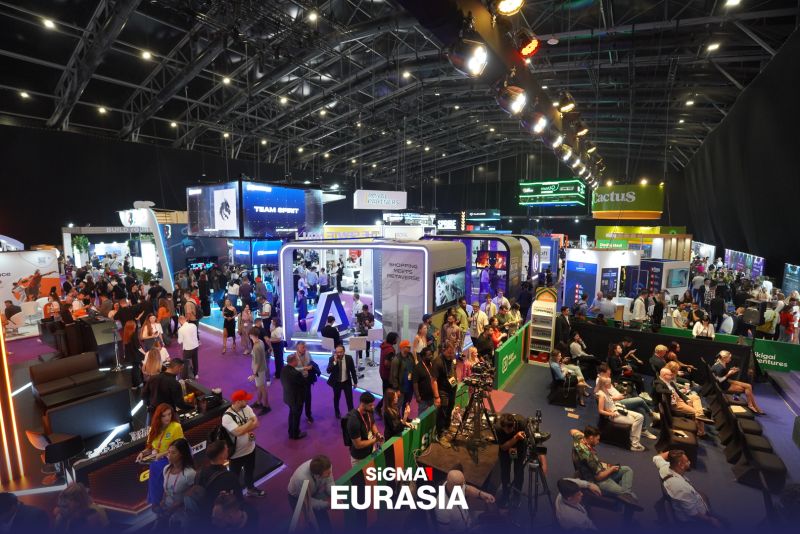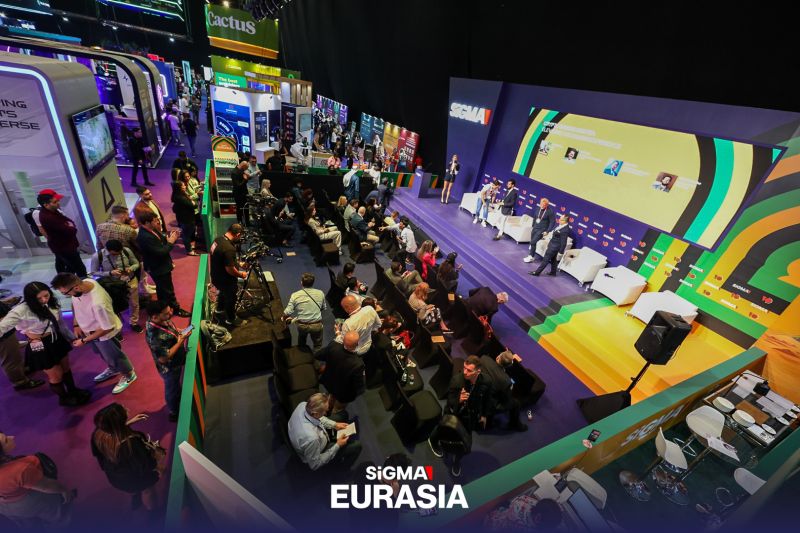SIGMAI TO ESPORTS IN UAE
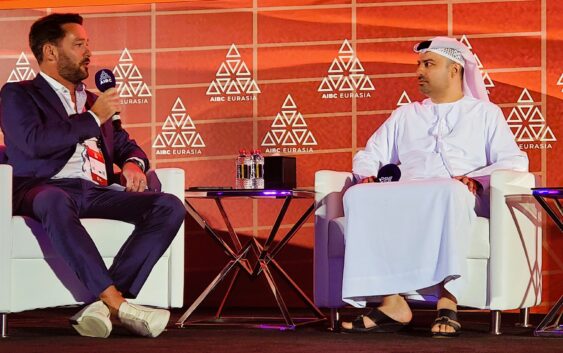
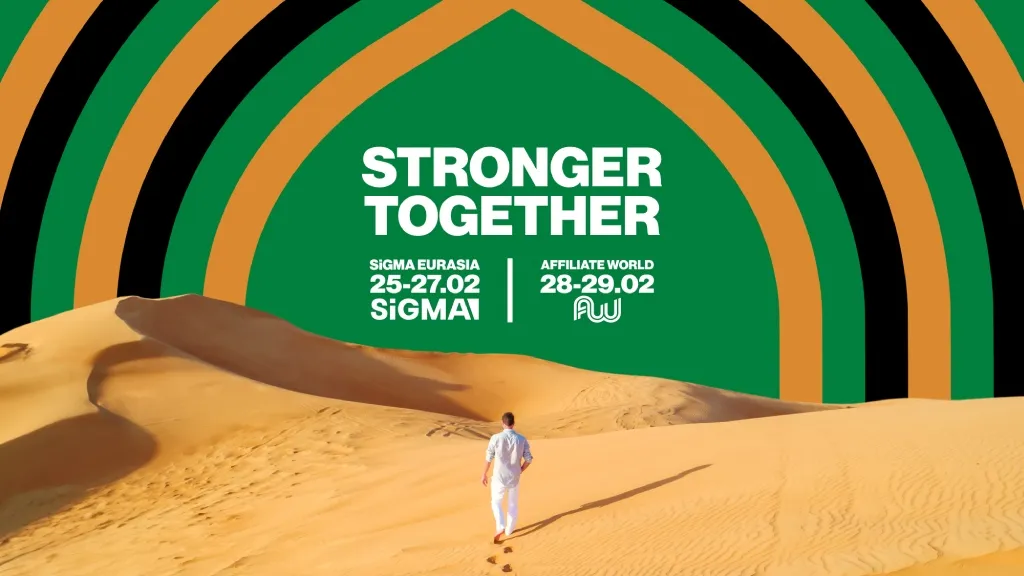
Dubai hosted the prestigious AIBC Eurasia 2024 from February 25th to 27th, marking a notable comeback for the event, which is known for exhibiting the best names in new technology. The conference was held at the Festival Arena by the Intercontinental Hotel Festival City, promising an unprecedented meeting of visionaries in Artificial Intelligence, Blockchain, and the Internet of Things.
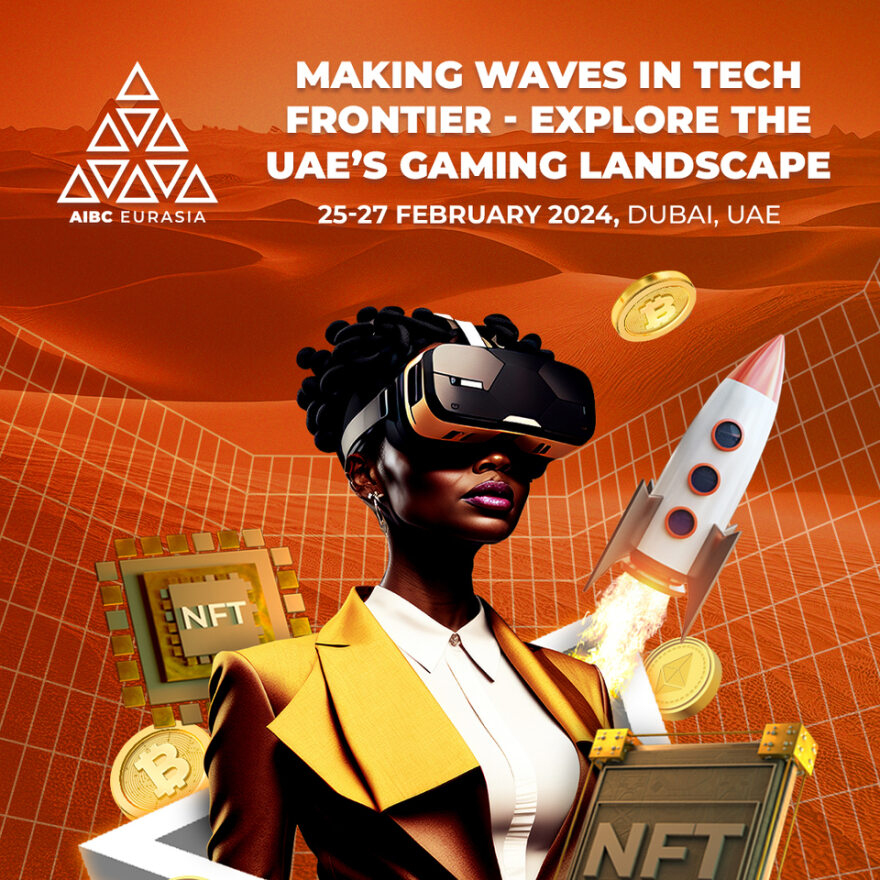
AIBC Eurasia 2024 was an important venue for debating long-term plans and ideas in a variety of industries, demonstrating Dubai’s commitment to nurturing an ecosystem of innovation and technical progress. The SiGMA and AIBC Eurasia 2024 event was another fabulous success, with a 14 thousand delegation passing through its doors.
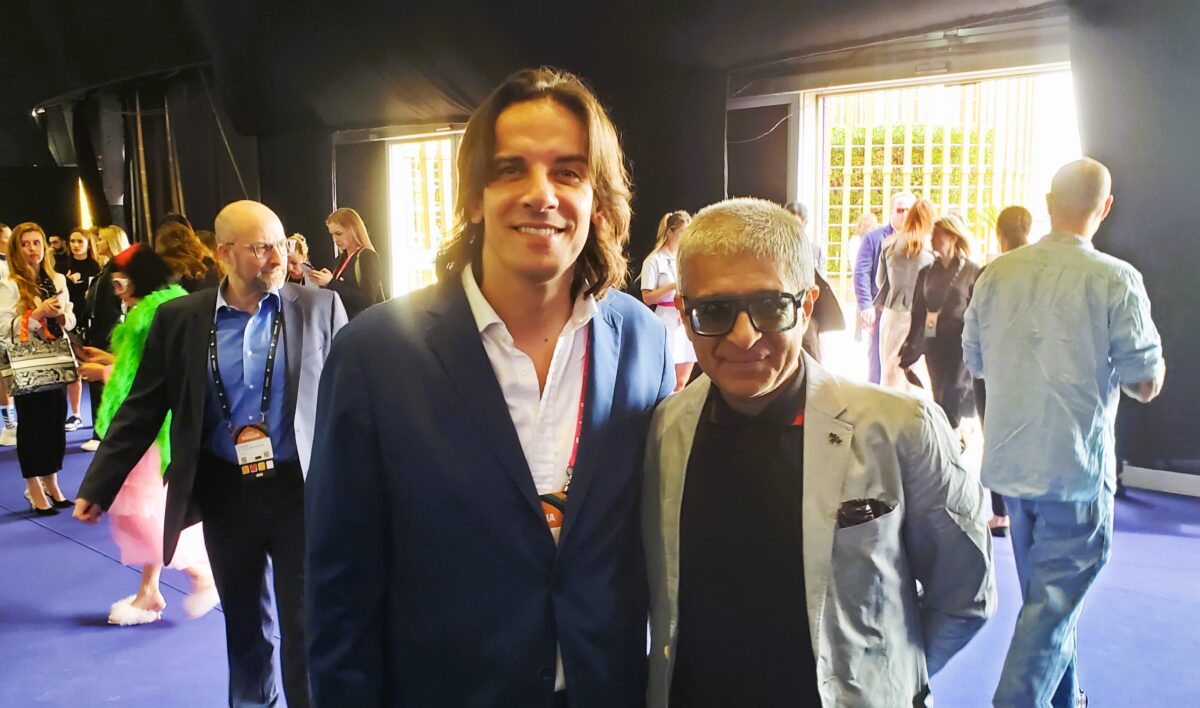
Drawing the leading figures of the emerging tech world to the Middle Eastern metropoles for cutting-edge technology, the 2024 AIBC UAE expo, brought together policymakers, developers, C-suite executives, and legal experts from the growing AI and Blockchain sectors. The exhibition laid the groundwork for the Industrial Revolution 4.0 by hosting three days of informative panels, exciting keynote speakers, seminars, and networking activities.

The event featured notable speakers from a variety of fields. Among the noteworthy speakers are Dr. Marwan Al Zarouni, CEO of the Dubai Blockchain Centre, Dr. Sara Al Madani, The Emirati Entrepreneur, David Meltzer, Founder of David Meltzer Enterprises, and Gil Solomon, Founder of Gil Solomon & Co.
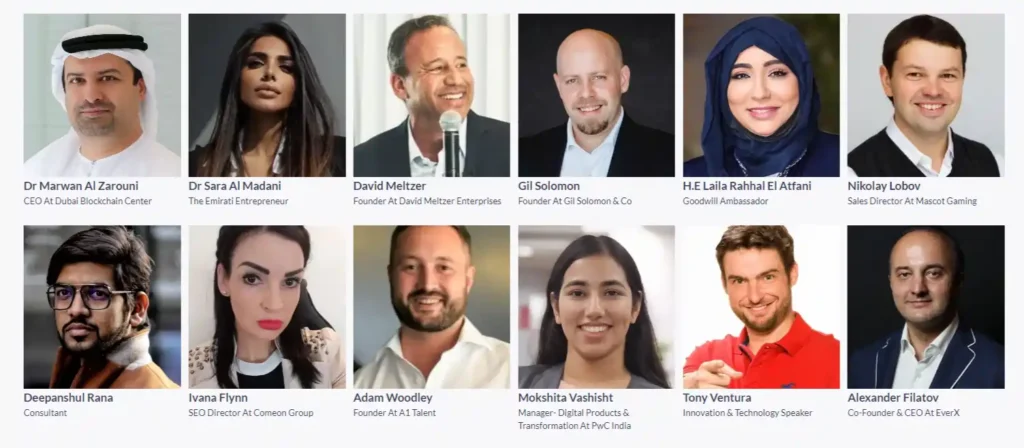
The schedule included keynote talks, discussions, and workshops with specialists from gaming, blockchain, marketing, and other relevant industries. There was also plenty of opportunity for networking and building relationships within the sector.
With over 400 speakers and workshops covering relevant themes in technology and gaming, SiGMA Eurasia 2024 provided important insights and possibilities to all guests.
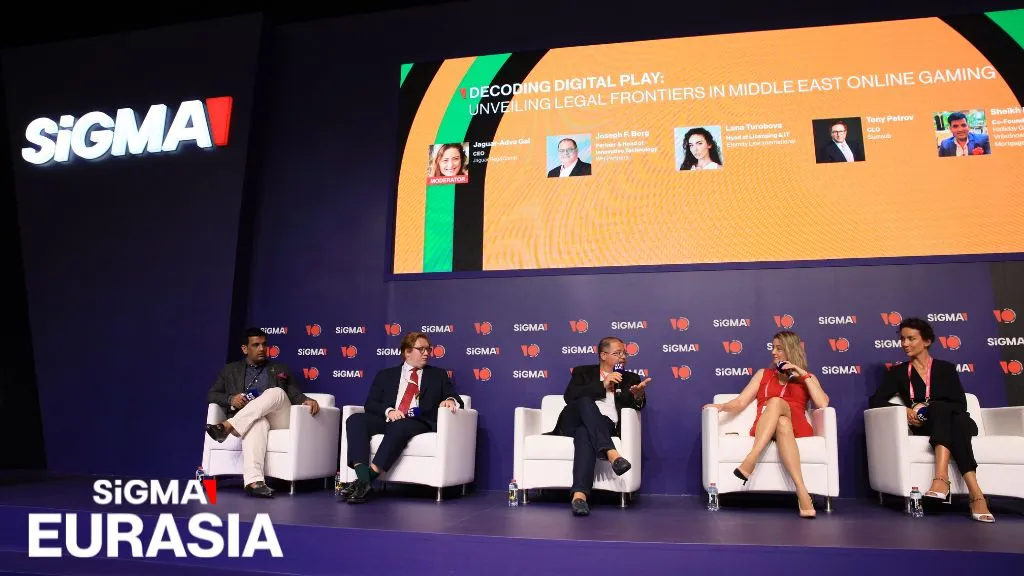
Decoding Digital Play: Unveiling Legal Frontiers in Middle East Online Gaming,” the first panel of SiGMA Eurasia 2024 set a captivating tone for the event, focused on the legal issues of online gaming in the Middle East. The discussion, titled “Decoding Digital Play: Unveiling Legal Frontiers in Middle East Online Gaming,” brought together industry professionals to discuss the developing regulatory framework and its profound influence on the region’s booming gaming business.
During this panel discussion, participants learned about the legal difficulties of online gambling, the changing regulatory landscape, and the influence on this expanding business in the Middle East.
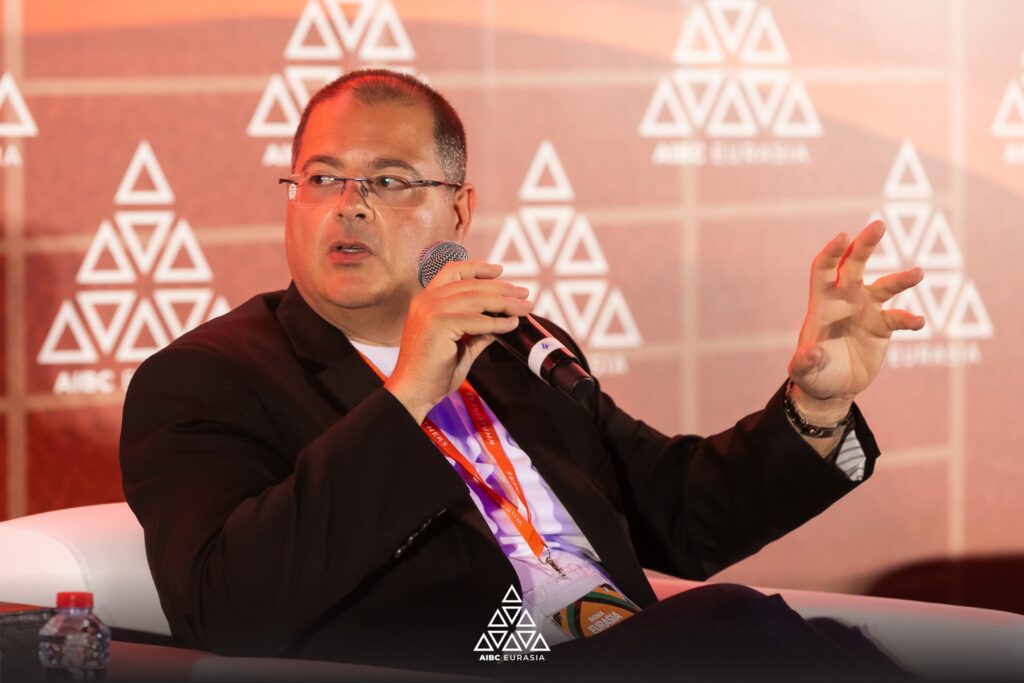
The panel, moderated by Jaguar Adva Gal, CEO of Jaguar & Comp, included distinguished figures in the field: Joseph F. Borg, Partner & Head of Innovative Technology at WH Partners; Lana Turbova, Head of Licencing & IT at Eternity Law International; Tony Petrov, Chief Legal Officer at Sumsub; and Sheikh Muhammad Noman, Co-Founder & BDP at Halliday Growth.
Joseph Borg set the tone by emphasising the need of regulators only acting when absolutely required, arguing for the development of a viable regulatory framework through open communication and input from industry operators. Borg warned about historical errors seen in other jurisdictions and urged the UAE regulator to take a collaborative approach.
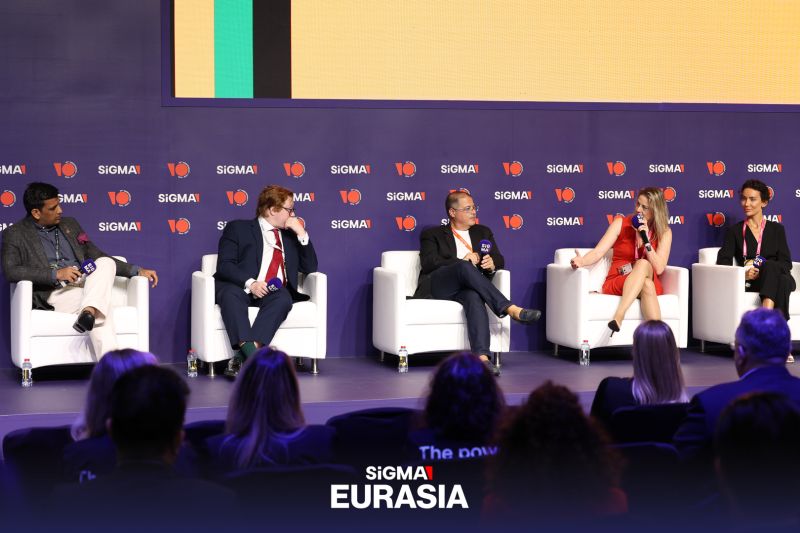
Lana Turbova reiterated Borg’s remarks, emphasising the importance of conforming rules to Islamic beliefs in the primarily Islamic MENA area. She proposed using AI technology to police conformity with Islamic law, notably by prohibiting local participation in betting-related gaming activities, while also emphasising AI’s potential for fraud detection and compliance monitoring.
Tony Petrov predicted a future with tougher regulatory measures for responsible gaming in the MENA area, emphasising the growing importance of compliance in the gaming industry. Sheikh Muhammad Noman emphasised the UAE’s appeal to companies, noting a friendly atmosphere and strong social and corporate security as major benefits.
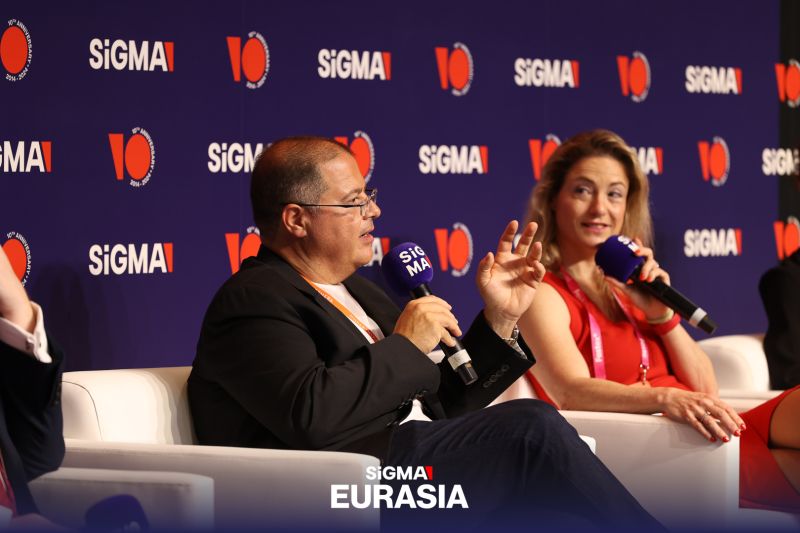
During the conversation, Jaguar Adva Gal triggered insights on the need for regulation in the UAE and the accompanying hazards. Joseph Borg emphasised the significance of due diligence in determining the validity of operators, with a particular emphasis on protecting vulnerable persons, combating fraud, and guaranteeing fair gaming operations.
Finally, the panel agreed that regulators play a critical role in creating an ecosystem favourable to the industry’s long-term viability. They emphasised a forward-thinking approach, advocating for regulatory frameworks that encourage innovation while protecting consumer interests and preserving the integrity of the gaming sector. As the SiGMA Eurasia conference unfolds, it is clear that debates like these will influence the future of the Middle East’s online gaming business.
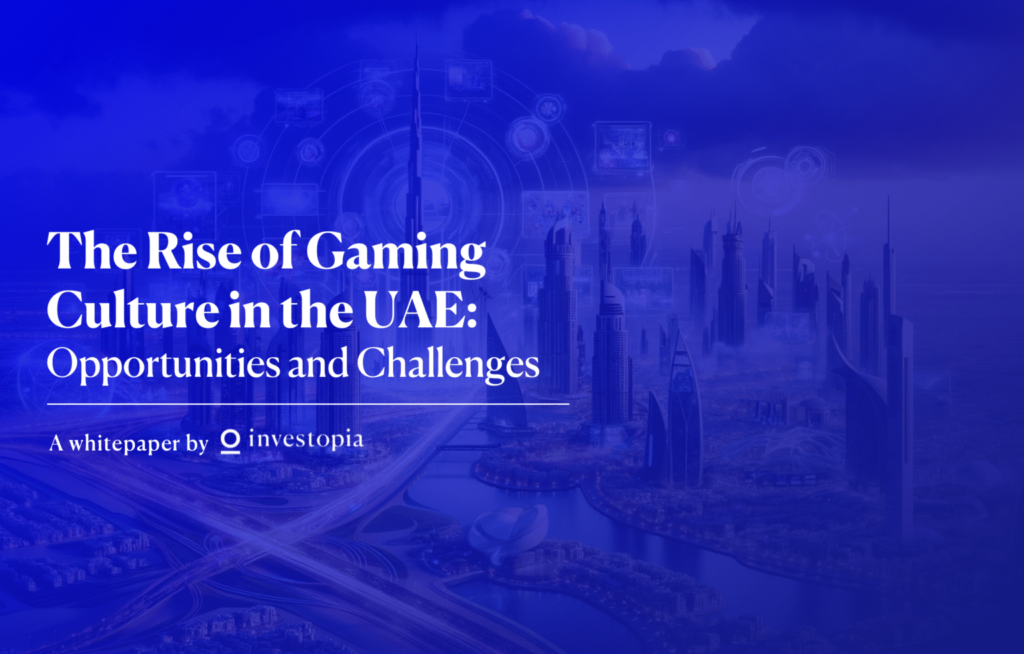
According to a whitepaper by Investopia, titled The Rise of Gaming Culture in the UAE: Opportunities and Challenges-
The UAE’s gaming business is seeing rapid expansion due to technological improvements, high internet penetration, and a tech-savvy youth population. As the UAE strives to become a global gaming powerhouse, we look at the opportunities and challenges that come with it, from economic development and talent cultivation to regulatory and cultural considerations, as well as the strategies stakeholders can use to navigate and thrive in this dynamic sector.
The UAE’s gaming industry has grown substantially, with mobile gaming taking a prominent position thanks to the country’s high mobile and internet penetration rates. The UAE gaming market generates around $350 million in revenue, with a significant portion coming from mobile
games. 76% of gamers using smartphones or tablets drive this segment’s growth, demonstrating a preference for mobile gaming over console and PC gaming. The average UAE gamer spends 20 to 40 minutes daily on mobile games, with genres such as Action, Adventure, Sports, and Racing being particularly popular. High-profile games like eFootball PES, Subway Surfers, PUBG, and Fortnite rank among the preferred choices for mobile gamers in the UAE. This enthusiasm for mobile gaming, combined with the willingness of nearly 39% of gamers to spend on mobile experiences, positions the UAE as a significant market for gaming revenue.
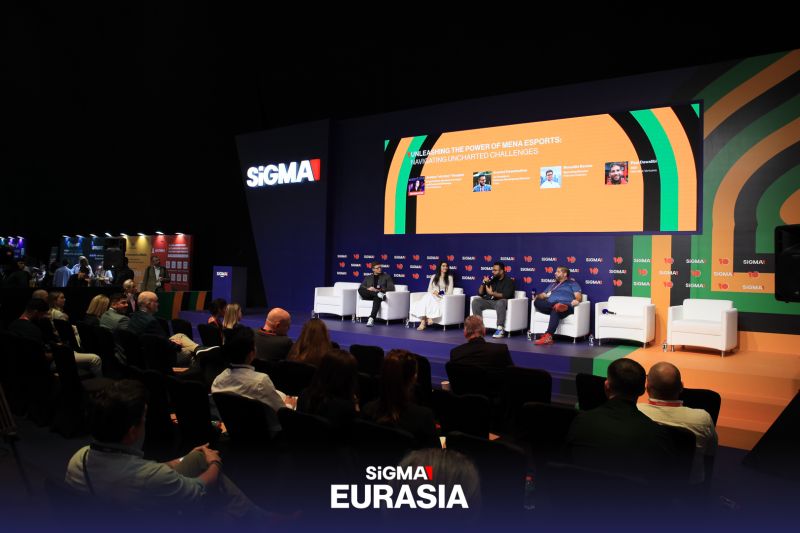
Unleashing the Power of MENA Esports: Navigating Uncharted Challenges
The panel discussion at SiGMA Eurasia 2024, was hosted by Arshiya “Xarshyy” Faraghat, focused on the specific potential and difficulties facing the Middle East and North Africa (MENA) Esports business. The panellists, Aravind Swaminathan, Benedikt Becker, and Paul Dawalibi, discussed MENA’s potential as a developing hub for Esports.
Paul Dawalibi, CEO of Holodeck Ventures, described the MENA area as the “last bastion of hope” for the Esports business, citing significant government expenditures that prioritise development above quick profits. Dawalibi emphasised the industry’s reliance on such investments for existence, ushering in a dramatic transformation in the global Esports scene.
Aravind Swaminathan, co-founder and business development director at Calyx, shared Dawalibi’s thoughts, recognising the flood of finance into MENA Esports. Xarshyy emphasised the necessity of spreading knowledge about Esports in the region, citing the industry’s current growing phase.
Benedikt Becker, Marketing Director at Shikenso Analytics, sees targeting the Gen Z demographic as a significant potential in the MENA region. This emphasis on younger populations represents an opportunity for exponential development and involvement in the region.
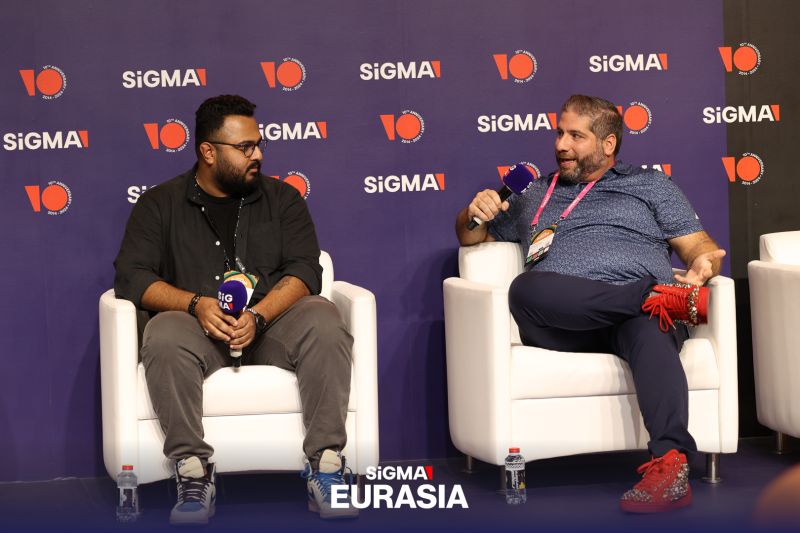
Along with these prospects, the panellists discussed the obstacles impeding the full realisation of MENA’s Esports potential. Xarshyy identified cultural views and societal conventions as important impediments, citing her personal experience with parental criticism when she chose a career in Esports over dentistry.
Aravind Swaminathan identified a lack of awareness among sponsors of Esports, emphasising the necessity for educational programmes to close this knowledge gap. Paul Dawalibi expressed worries about the industry’s long-term viability, particularly in light of fragmented investments and the balancing act of enticing visitors while catering to the local populace, as witnessed in Saudi Arabia.
When asked a forward-looking question of the panellists, where do they see MENA Esports in a decade? While Dawalibi remained sceptical, Swaminathan predicted that significant sponsorships would enter the region, and Becker cited cloud gaming as a possible game changer. Their thoughts highlighted both the possibilities and the obstacles that MENA Esports faces, providing a complicated yet exciting picture of the future.
Girish B outlook on the MENA Esports landscape:
- Rapid Growth: The MENA region is experiencing explosive growth in esports, with a population of over 420 million people, mainly young and tech-savvy.
- Diverse Challenges: The MENA region is composed of countries with varied legal and cultural frameworks, creating challenges in areas such as infrastructure, intellectual property, and regulatory issues.
- Localization: While localization is necessary to cultivate a strong esports ecosystem in the region, it presents its own challenges, including language barriers, cultural differences, and varying levels of digital adoption.
- Women in Esports: MENA has the lowest percentage of women in esports at only 6.2%, creating a significant opportunity for female gamers to not only participate but also shape the esports industry in the region.
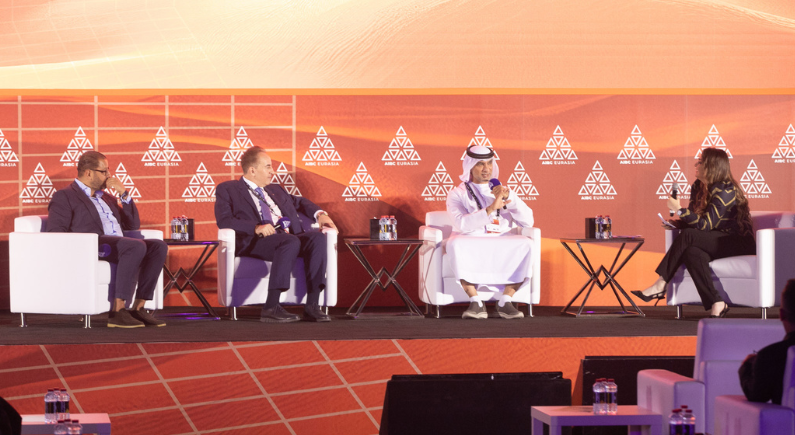
According to industry professionals who spoke at the AIBC Eurasia panel titled “Building digital future together: best practices for creating digital ecosystem,” creating digital ecosystems entails fostering sustainability and polishing skills. The discussion was hosted by Zeina Akkawi of PAZ Marketing Management and took place at the Intercontinental Hotel Festival City in Dubai.
“Things don’t happen overnight. So it’s a lengthy road to understand how the ecosystem may be evolved as a result of being digital,” Maher Al Kaabi of Alserkal Group explained as he highlighted what a digital ecosystem is and the changes it brings.
According to Al Kaabi, the UAE began adopting technology around 1995. “Now we’re talking about being one of the smartest cities, the top three globally. For you to do that, you need to have a clear national agenda, UAE agenda,” Al Kaabi said. “So if you go back to the website of UAE, you’ll see there’s a clear strategy, how the government is gonna transform and become very digital in all the services they offer,” said Al Kaabi.

Meanwhile, Kassem Lahham of Bright Wealth Banking explained in the panel discussion how blockchain technology is transforming the face of business, particularly banking, as part of the process of creating a better digital environment.
“We come into a new age of banking, which will be combining traditional banking we know from commodity trading to equity trading and blockchain is something which will give us the security and the safety to bank in a way which is in the long term more than safe,” Lahham said.
Lahham added that digital assets had a future in the UAE. “Dubai has started with VARA which is the virtual asset regulatory body in the UAE, to start preparing for digital assets, to start regulating it in a way that you still have the freedom of moving digital assets, funds around between A and B,” he said.
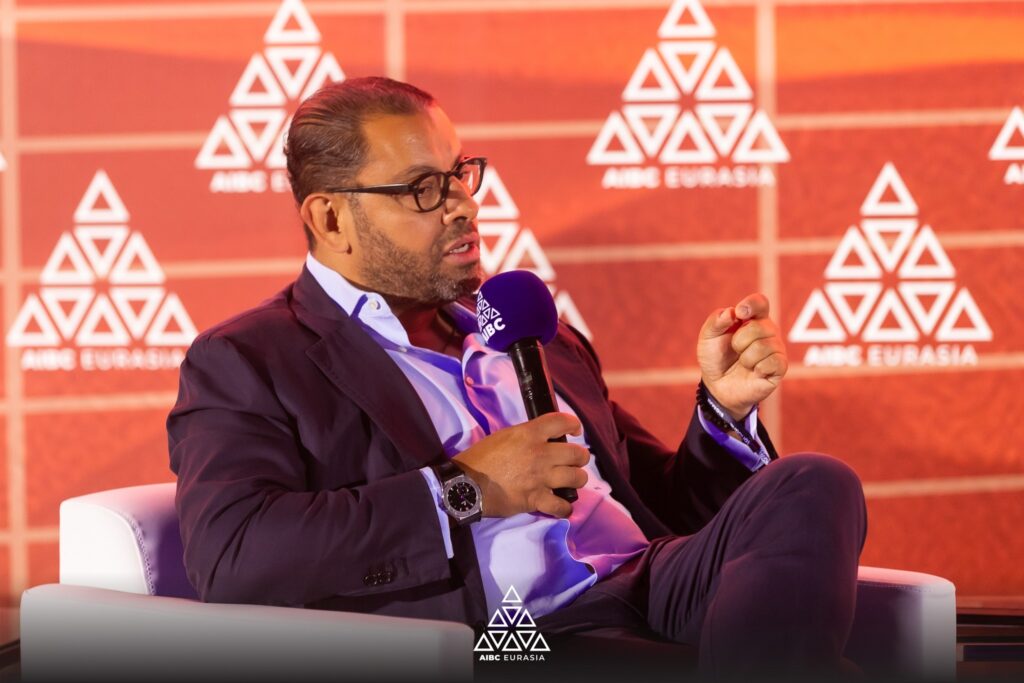
Sam Katiela of Mamemo Consulting FZCO stated that creating a digital ecosystem necessitates collaboration. “We are creating completely new language models. The way of how we used to do business is no longer existing,” Katiela said. “These days it’s not anymore that the people will look for the product, the product finds the people.”
Al Kaabi repeated this, stating that the government collaborates extensively with the corporate sector and academia. “There is a lot of collaboration happening between the government and the private sectors and academia,” Al Kaabi said. “So for you to develop an ecosystem, you have to have a very clear plan and a vision to make that happen.”
Al Kaabi and Katiela agreed that in order to reach its blockchain goal, the company must recruit both global and local expertise from the UAE. Al Kaabi said, “That’s why Dubai NextGen was launched in terms of attracting talent and also making sure the Emirati talent as well are there. So we have a plan for about 100,000 Emirati talents by 2025. They need to be good coders and blockchain and Web3 and so forth.”
“They’re empowered local talents. They’re bringing new talents from abroad, unite them. And that is all the keywords. Unity is the keyword. If you do it alone, you run fast. If you do it in a united manner, you run longer,” Katiela said.
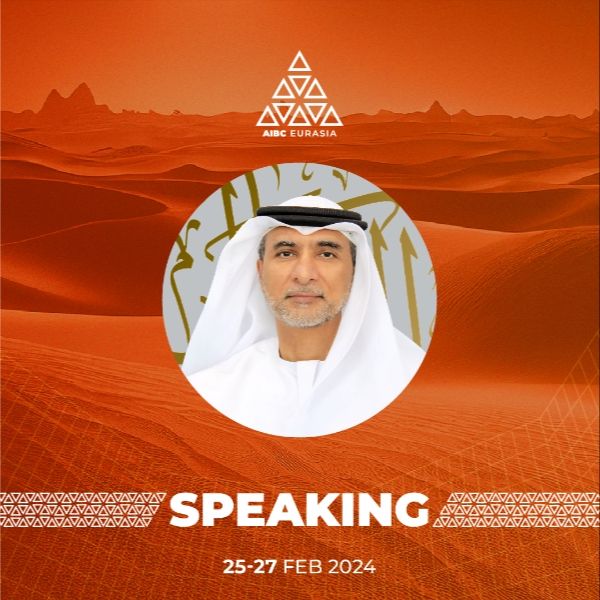
Girish B view –
- Collaboration: Digital ecosystems thrive on collaboration between public and private entities, with each bringing unique strengths to the table. Open APIs and data sharing can drive innovation and enable a more robust digital ecosystem.
- Governance: Robust governance mechanisms, including data protection and cybersecurity frameworks, are crucial for the development of a trustworthy and secure digital ecosystem.
- Responsible Innovation: Emerging technologies like AI and IoT can transform industries, but ethical considerations must be factored in, and transparency is crucial.
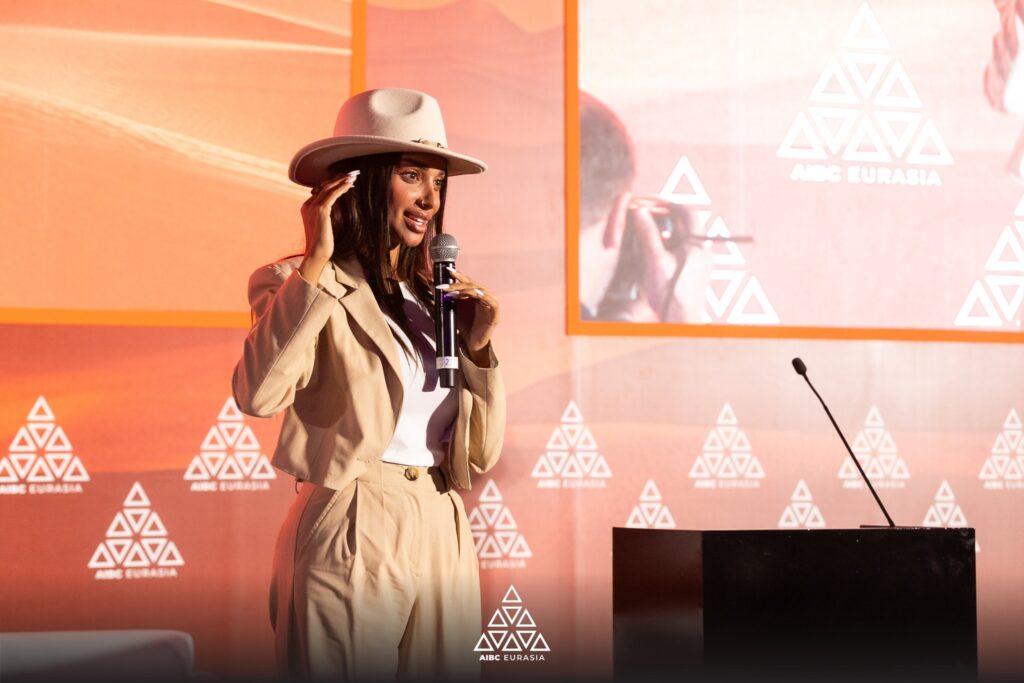
PANEL – AI IN DATING
Engage in AI’s role in dating, covering matchmaking algorithms, chatbots, predictive user behavior analysis, and ethical considerations. Moderated by Dr Sara Al Madani – The Emirati Entrepreneur.
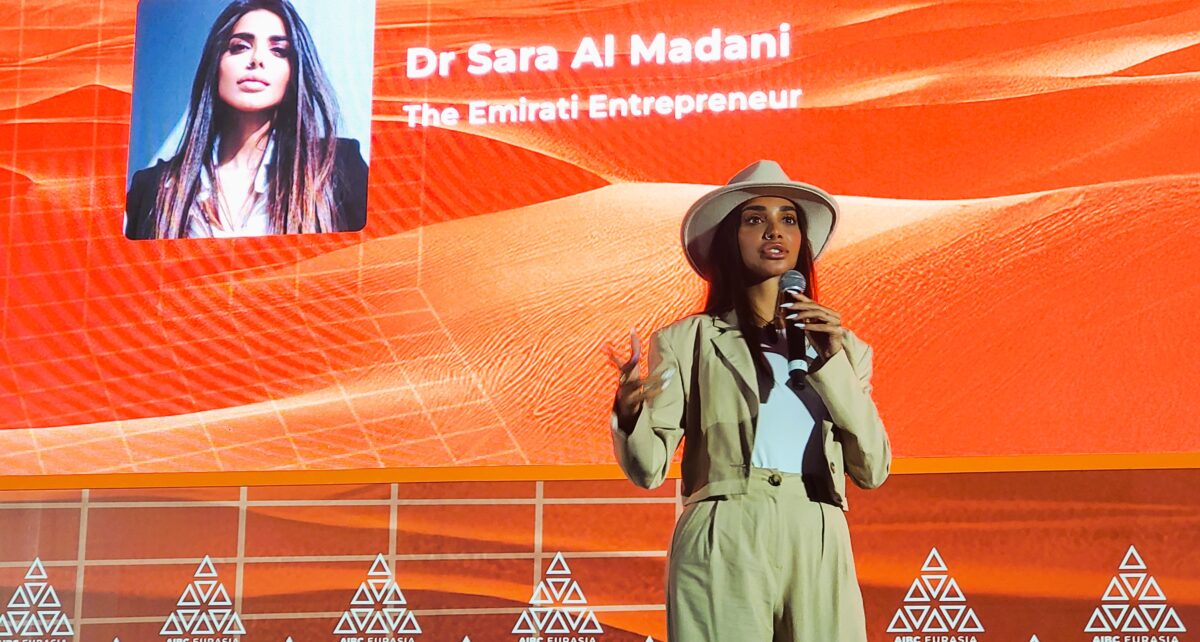
Dr. Sara Al Madani, an Emirati entrepreneur celebrated for her contributions to technology and entrepreneurship, and who has been instrumental in fostering innovation and empowering aspiring entrepreneurs through her mentorship and public speaking engagements. Dr Sara Al Madani -The Emirati Entrepreneur was the moderator and panelists were Christiana Maxion, Founder & CEO of MAXION, The Matchmaking Concierge, and Humza Zahoor, CEO & Founder of Social Awaken (@recipetosuccess), for a dynamic discussion on how AI is shaping dating and relationships. Discover insights on human connection, authenticity, and the role of technology in modern romance.
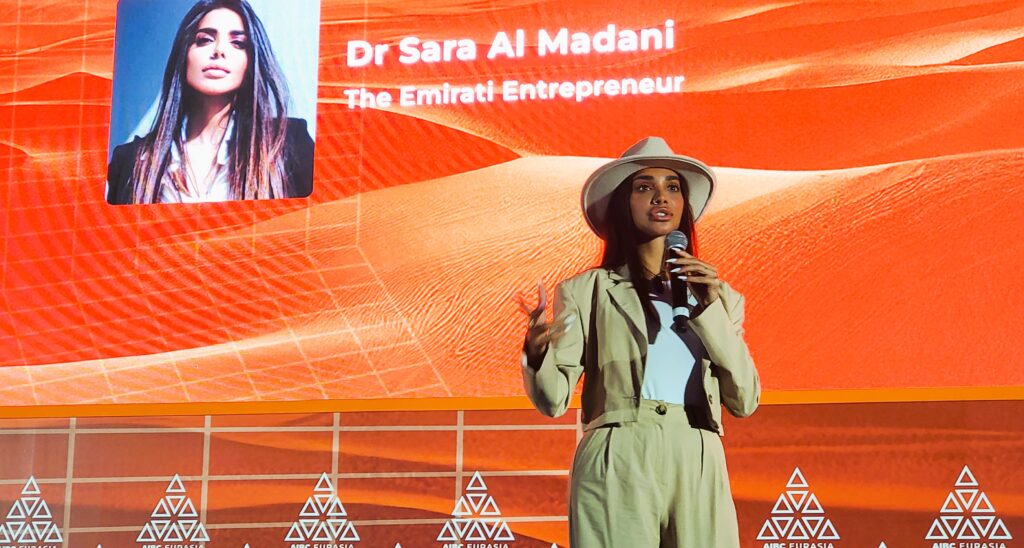
This panel provided a wealth of insights on how AI is influencing the dating landscape:
Social Media Influence: Social media and dating apps are blurring the lines between online and offline interactions, with AI personalizing matches based on social media data.
Conversational Intelligence: Some dating apps use AI-powered chatbots to engage users and facilitate interactions, which can be a double-edged sword, fostering inauthentic connections.
Behavioural Analytics: AI can analyze user behavior to create more personalized recommendations, but this raises privacy and ethical concerns.
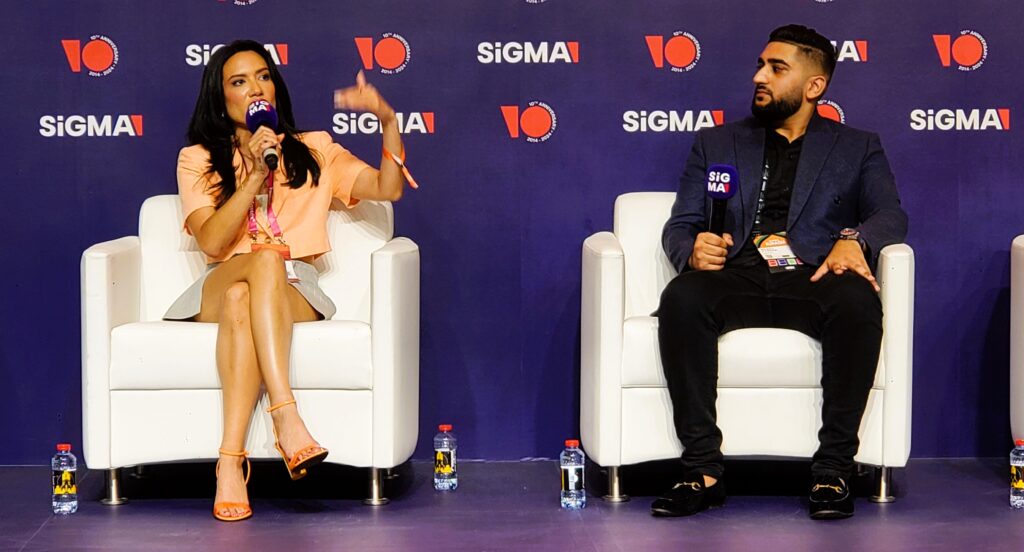
Christiana Maxion, Founder & CEO of MAXION, The Matchmaking Concierge, and Humza Zahoor, CEO & Founder of Social Awaken (@recipetosuccess), had a dynamic discussion on how AI is shaping dating and relationships. Discover insights on human connection, authenticity, and the role of technology in modern romance.
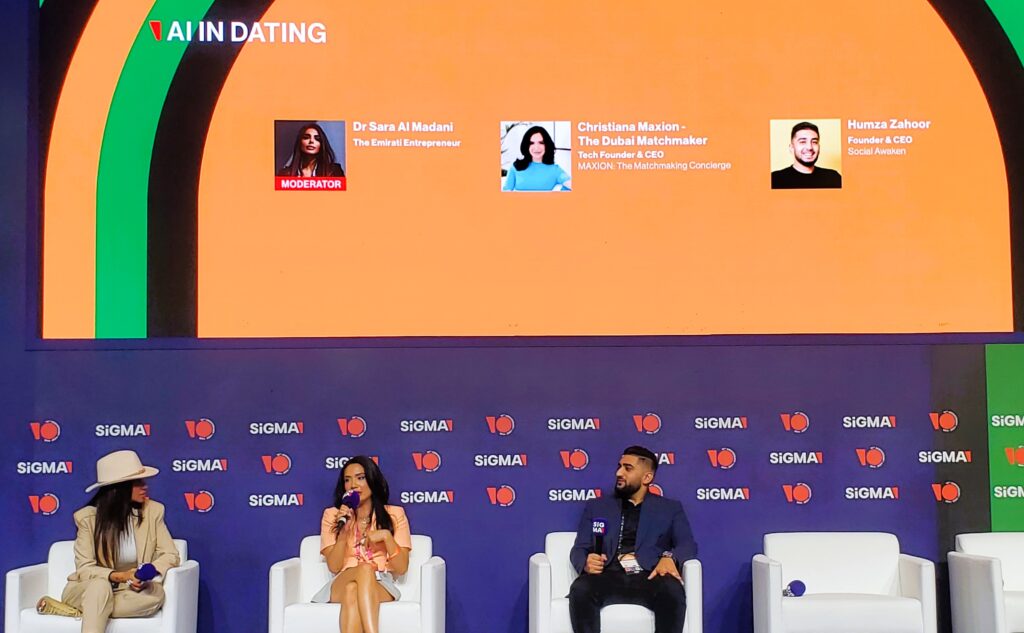
Girish B view
AI’s impact on the dating world:
- Matchmaking Algorithms: Dating apps use AI to match users based on factors like interests, location, and previous preferences. This can lead to more successful matches, but also limits choices.
- Chatbots: Some apps employ chatbots to engage users and prompt conversations, but this can lead to inauthentic interactions.
- Predictive User Behavior Analysis: Dating apps may analyze user behavior to make personalized recommendations, but this raises concerns about privacy and data collection.
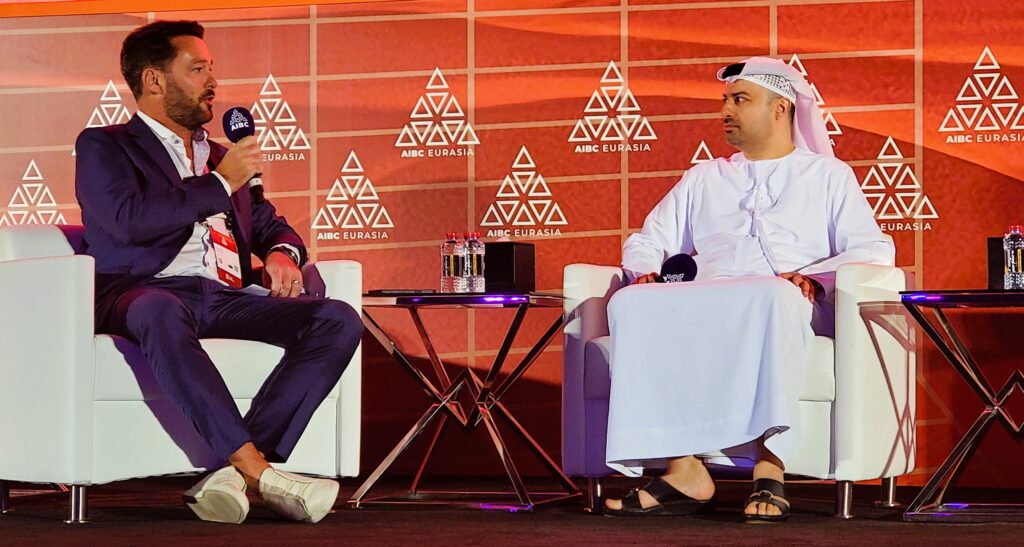
Dr. Marwan Al Zarouni, CEO of the Dubai Blockchain Centre, whose knowledge has been instrumental in establishing Dubai as a worldwide blockchain hub. Dr. Al Zarouni’s contributions to the blockchain community have received global recognition, including an advising role at the World Economic Forum.
In a fireside chat with Dr. Marwan Al Zarouni – CEO – Dubai Blockchain Center and Josef Holm – Founding Partner – Draper Goren Holm, the masterminds of web3 and the UAE’s rising tech industry, had an enlightening discussion about investment and company development in the UAE and throughout the world.
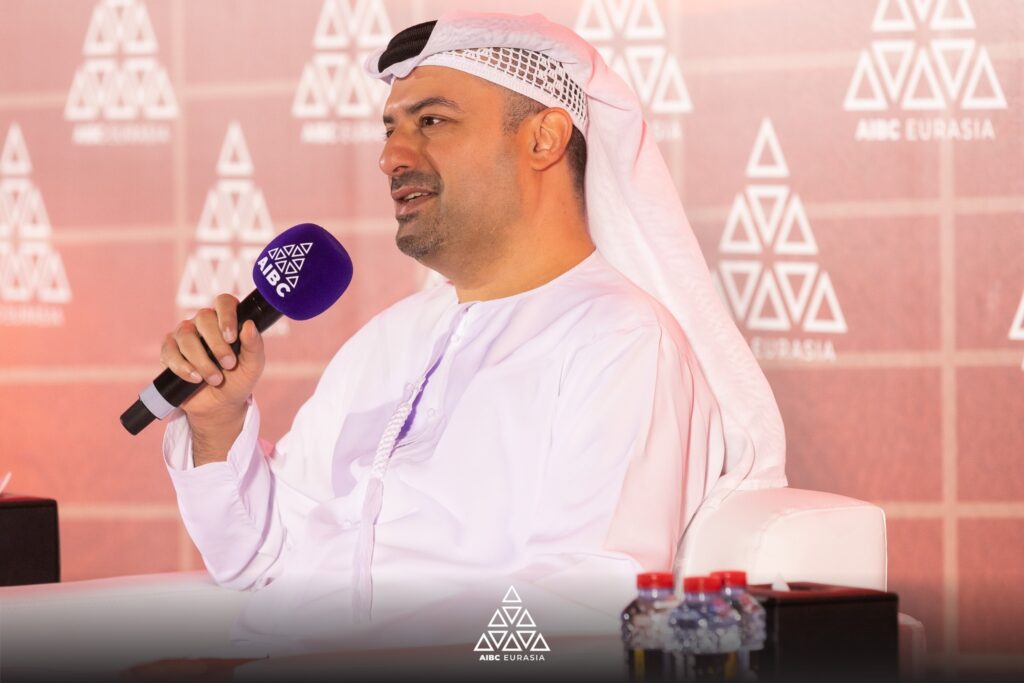
Blockchain Adoption: Dr. Al Zarouni discussed the increasing adoption of blockchain in Dubai, highlighting the government’s efforts to create a supportive regulatory framework and use cases in various industries like healthcare, logistics, and real estate.
Venture Capital: Josef Holm emphasized the growing interest of venture capitalists in blockchain startups, as they are increasingly focusing on companies with innovative solutions and strong fundamentals.
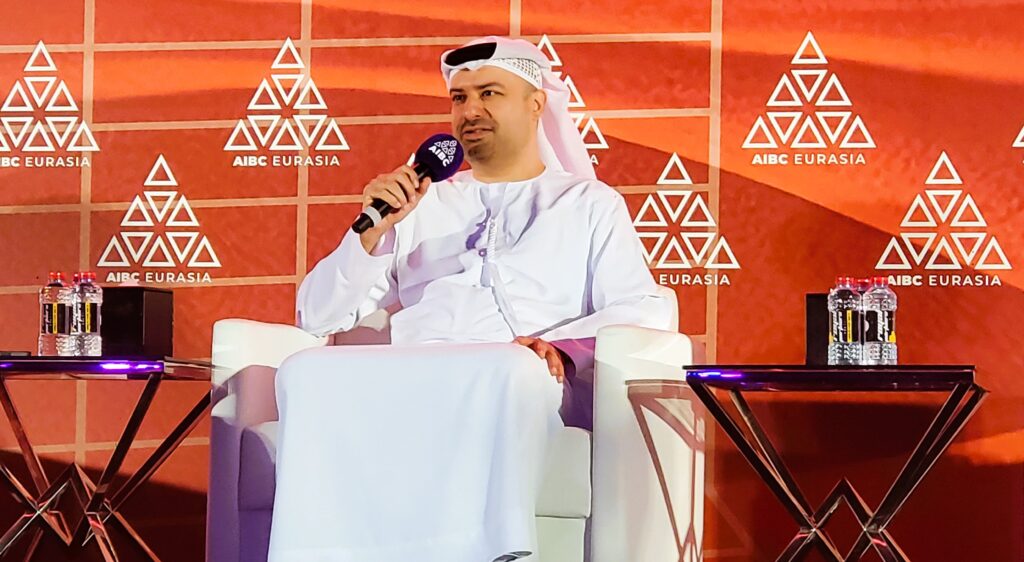
Dr. Al Zarouni discussed the Dubai Blockchain Strategy, which aims to create a blockchain-enabled government by 2021, as well as the city’s thriving blockchain community. He highlighted Dubai’s efforts to become a global blockchain hub, with initiatives like the Dubai Future Accelerators and the Dubai International Blockchain Summit.
Josef Holm emphasized that while blockchain technology is still in its early stages, it has great potential to disrupt various industries. He also highlighted the importance of due diligence and diversification for venture capitalists investing in blockchain startups.
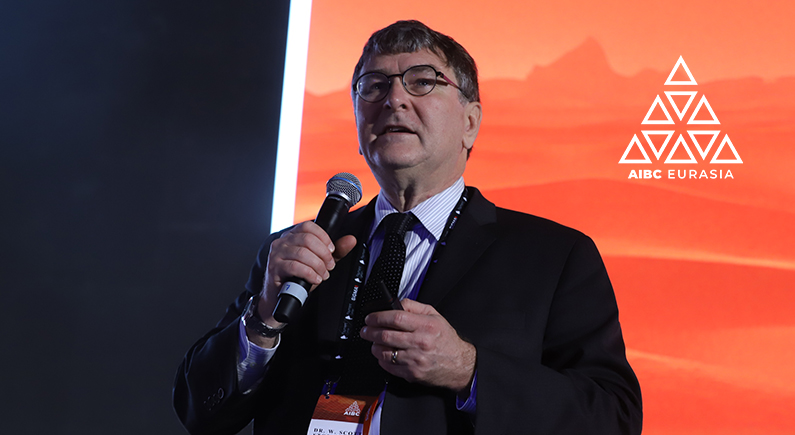
Prof. Scott Stornetta is popularly known as the “Father of Blockchain,” whose innovative work with Stuart Haber in the early 1990s provided the groundwork for blockchain technology, resulting in the establishment of the longest-running blockchain project, Surety Technologies, in 1995. As a Partner and Chief Scientist of Yugen Partners, Stornetta continues to have a big impact on the blockchain industry.
KEYNOTE BY DR. W. SCOTT STORNETTA –
Keynote by Dr. W. Scott Stornetta – Partner & Chief Scientist – Yugen Partners, a prominent figure in the blockchain industry, shared his insights on deep technology and AI in this keynote address, topic – WHAT’S REALLY DRIVING AI AND OTHER DEEP TECH.
During the keynote, Stornetta emphasised that their early theoretical works not only contributed to blockchain theory, but also resulted in the implementation of the world’s first blockchain on October 13th, 1991—a system that is still in existence today. While the blockchain initially performed simple functions, its continuous operation since 1991 demonstrates its lasting character.
The audience learned about Stornetta’s rich experience in technology, including his groundbreaking work on neural networks for his Ph.D. dissertation at Stanford in 1987. He provided a larger view of the technology environment, encouraging attendees to examine the long-term consequences of blockchain and AI.
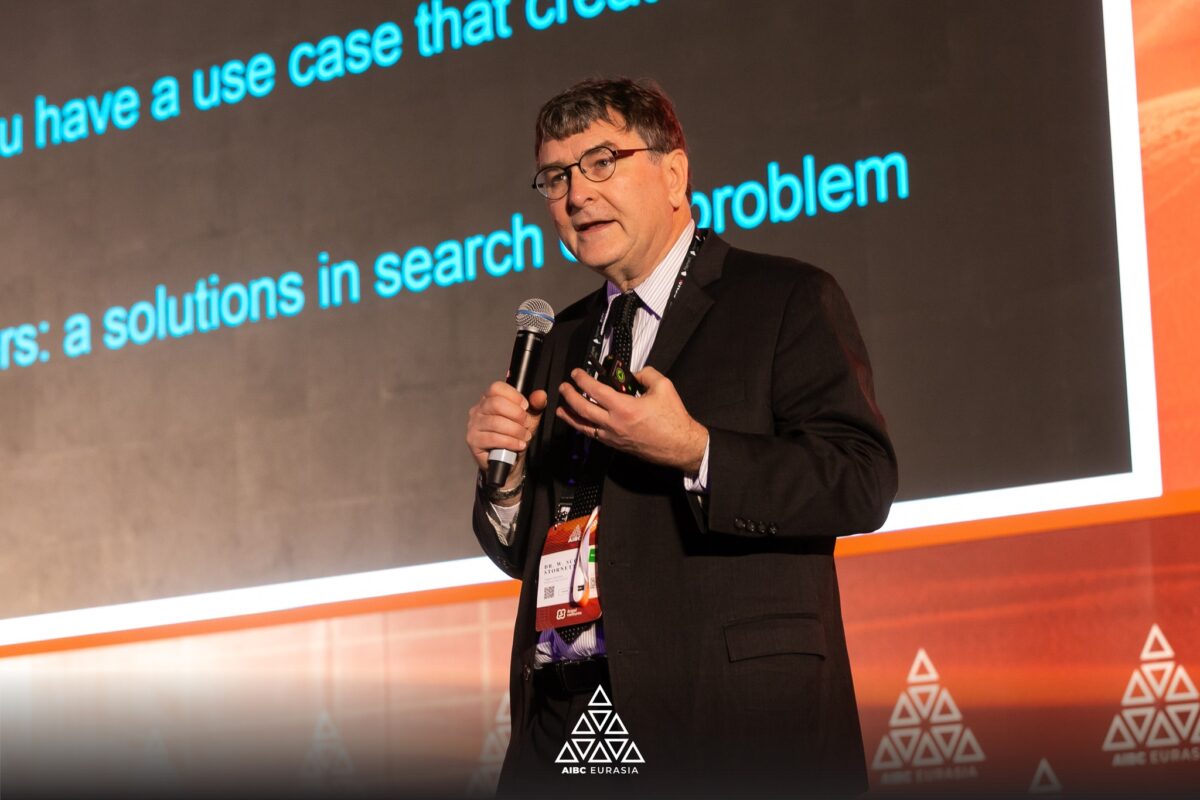
Stornetta voiced serious concerns about the viability of blockchain applications, asking enterprises to demonstrate genuine value rather than simply riding the buzz. As an investor in both blockchain and AI, he emphasised the need of discovering use cases that truly offer value to the industry.
Stornetta focused on AI, outlining three possibilities for its future evolution. He emphasised the possible difficulty of discriminating between reality and AI-generated entertainment, emphasising the importance of careful thinking as technology evolves.
He also drew analogies between the fear of job loss during the industrial revolution and current fears about artificial intelligence. He emphasised the historical pattern of technical breakthroughs resulting in the development of new jobs rather than widespread unemployment. Stornetta used examples such as the spinning jenny, threshing machine, and switchboard operators to demonstrate how each technical advance resulted in new possibilities and businesses.
When discussing AI, Stornetta downplayed the exaggerated fears of AI conquering mankind, stating the agreement among AI experts that such situations are exceedingly implausible. He emphasised the need of people understanding AI technologies and knowing how to utilise them successfully, as well as the relevance of human intellect in conjunction with technology.
Addressing the growth of deepfake technology, Stornetta cautioned of the growing difficulties in discriminating between reality and artificially made information. He used an interesting example of a deepfake of Tom Hanks supporting a dentistry plan to emphasise the importance of tools for asserting identification in the face of deepfakes.
“We will lose the ability to distinguish between the truth and what is real and the falsity and what is artificial. If you are not in a face to face physical interaction, reality will become a blur.
“When it comes to innovation, in spite of all advancements, what matters begins and ends with people”
Stornetta concluded with suggestions for remaining relevant in the face of fast innovation, urging participants to embrace technology rather than fear it. He emphasised the importance of augmented talents and increased skills gained via technology, putting individuals as the driving force in the changing economy.

Girish B views :
Data vs. Information: Stornetta highlighted the importance of recognizing the difference between data and information. He emphasized that data is useless without context, and that information is what provides meaning and understanding.
Human-Centric AI: Stornetta stressesed the need for human-centric AI that is transparent, accountable, and aligned with human values.
Blockchain as an Information-Preserving Technology: Stornetta argues that blockchain, as a tamper-resistant, information-preserving technology, has the potential to enhance trust and transparency in various applications, from AI to financial transactions.
AI & Technology Governance: Stornetta addressed the critical role of governance in deep tech, emphasizing that regulation and standards must balance the need for innovation with ethical considerations and security.
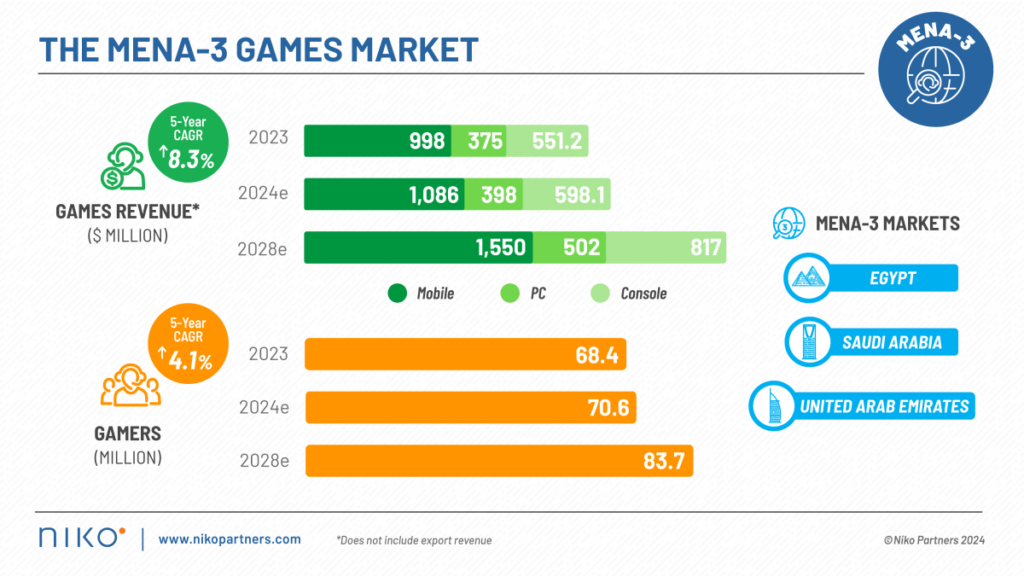
According to Niko Partners – Key takeaways from the MENA Market Model Reports
The MENA-3 video games market generated revenue of $1.9 billion in 2023, up 7.8% YoY.
The MENA-3 video games market is set to grow 8.2% in 2024, with revenue of $2.1 billion, and is forecasted to reach $2.9 billion in 2028, growing at a 5-year CAGR of 8.3%.
The MENA region is the second fastest growing region we track, both by revenue and gamers.
The MENA region has traditionally been underserved despite being home to more than 500 million people across all countries. Gaming trends and behaviors often mirror those of the global market, especially in gulf states with high expat populations.
The MENA-3 video game market had 68.4 million gamers in 2023, up 2.9% YoY. The total number of gamers is set to grow 3.1% in 2024, reaching 70.6 million, and is forecasted to reach 83.7 million in 2028 at a 5-year CAGR of 4.1%.
Saudi Arabia is the powerhouse of the MENA-3 region tracked by Niko Partners and is the largest market by revenue in MENA as a whole. Growth was driven by the console gaming segment and a rebound in mobile games revenue.
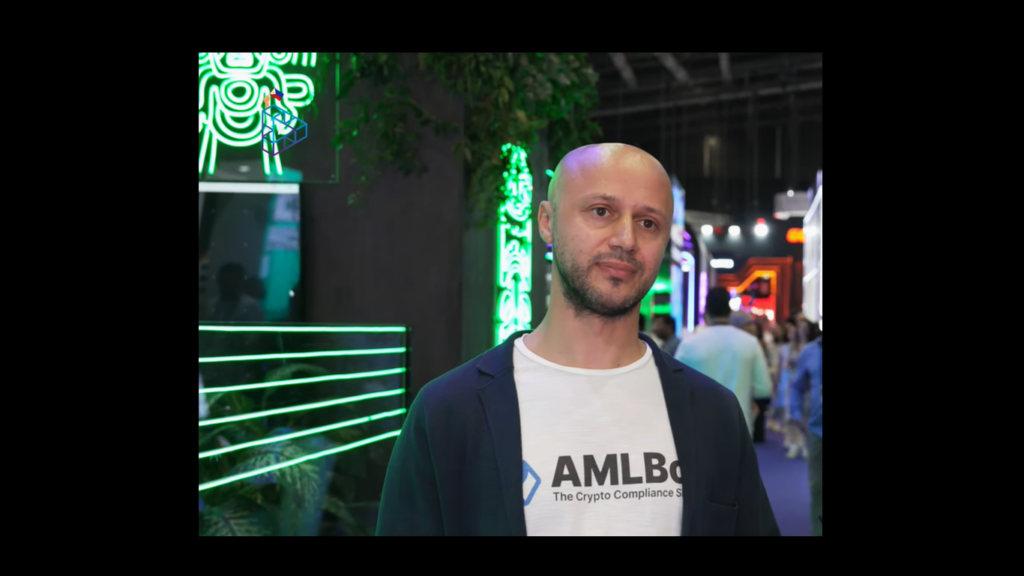
Krista did an exclusive and in-depth conversation with Slava Demchuk, CEO AMLBot. During this riveting conversation, they discuss a wide range of issues, from the company’s cutting-edge efforts and planned projects to thought-provoking views on the future of money.
In this video, Slava Demchuk, CEO of AMLBot, shares his thoughts on cryptocurrency regulations, blockchain transparency, and AML (Anti-Money Laundering) solutions.
Some key takeaways include:
- Regulating Cryptocurrencies: Demchuk believes that crypto regulations are crucial for mainstream adoption and financial stability. However, he warns that overly strict regulations may inhibit innovation and push crypto businesses underground.
- Blockchain Transparency: Demchuk points out that while blockchain technology offers unparalleled transparency, it also exposes data that can be misused by bad actors, highlighting the importance of privacy-preserving solutions.
- AML Solutions for Crypto: Demchuk emphasizes the need for reliable and cost-effective AML solutions in the crypto industry, as traditional compliance solutions are often ill-suited for the unique challenges of digital currencies.
- Collaborative Approach to Compliance: Demchuk advocates for a collaborative approach between regulators, blockchain firms, and AML solution providers, arguing that a collective effort is necessary to combat illicit activities while ensuring regulatory clarity and innovation in the crypto space.
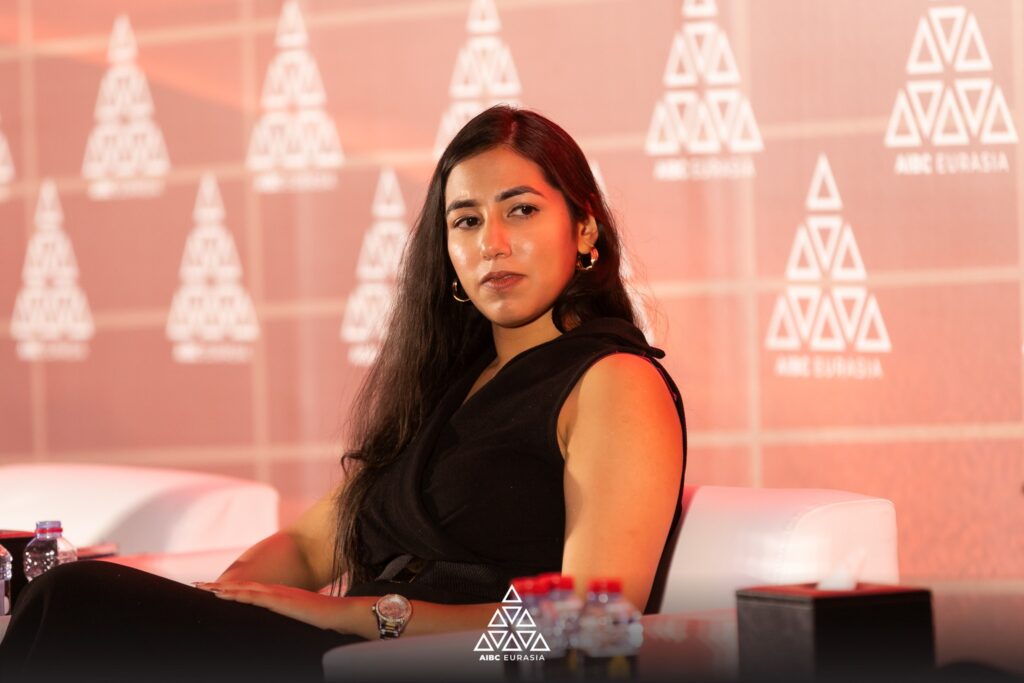
Mokshita Vashisht delivered a KEYNOTE – BUILDING TRUST WITH EMERGING TECHNOLOGIES, Responsible AI and Respecting User Data Privacy and Protection with Blockchain. at AIBC World Eurasia about the necessity of developing trust in #AI. She discussed how individuals, institutions, and enterprises can innovate and consume AI solutions while navigating the threat landscape, how technical standards and techniques such as content provenance and disclosure are leading the way in establishing a foundational layer of trust and maintaining ethics, and how user design should be at the forefront when developing AI systems.
Gen AI is changing the way we do business, but like any other technology revolution, it isn’t flawless. A believable imitation may now be constructed using only a few seconds of your voice or a few photos of your face.
Mokshita Vashisht, CEO and Founder of PVBLIC, addresses the crucial topics of responsible AI and user data privacy in her keynote. Some key points:
Ethical AI Development: Vashisht argues that ethical principles, such as fairness, accountability, and transparency, should be incorporated into AI development, ensuring that AI systems are designed to minimize potential harm.
Data Privacy & Protection with Blockchain: Vashisht explores how blockchain technology can enhance data privacy by creating secure, decentralized storage solutions and enabling users to control their data.
Privacy-Preserving Machine Learning: Vashisht advocates for the development of privacy-preserving machine learning techniques that enable AI systems to learn from sensitive user data while protecting individual privacy.
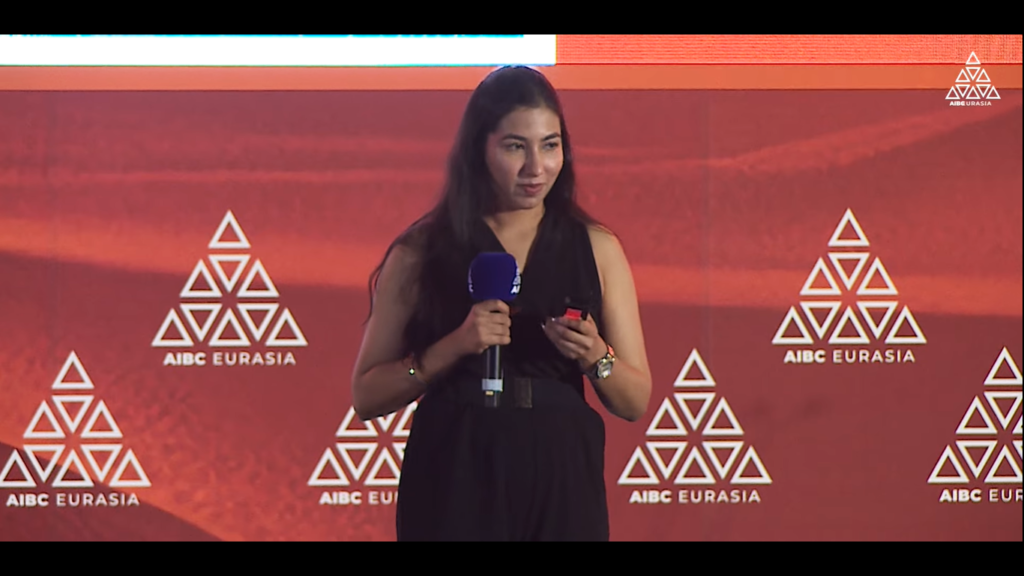
User Education and Awareness: Vashisht stresses the importance of user education and awareness to promote responsible data sharing and enable users to make informed decisions about their data privacy and protection.
She concludes by emphasizing that a collaborative effort among regulators, tech companies, and users is crucial to building trust in emerging technologies and creating a responsible digital ecosystem.
Mokshita Vashisht’s keynote certainly provides a holistic view of the challenges and opportunities that responsible AI and privacy-preserving technologies present for our society. As she aptly stated, “Privacy isn’t about something to hide; it’s about something to protect. Protecting our data is about protecting our identity, our dignity, our autonomy.”
Mokshita Vashisht’s focus on “Building Trust with Emerging Technologies: Responsible AI and Respecting User Data Privacy and Protection with Blockchain” is timely and crucial in today’s digital landscape.
1. **Responsible AI**: As AI becomes increasingly integrated into various aspects of our lives, ensuring its responsible use is paramount. Mokshita’s emphasis on responsible AI implies a commitment to ethical practices, fairness, and accountability in AI development and deployment. This involves addressing biases, ensuring transparency in decision-making processes, and mitigating potential risks associated with AI systems.
2. **User Data Privacy and Protection**: With growing concerns about data privacy and security breaches, protecting user data has become a pressing issue. Mokshita’s approach of leveraging blockchain technology for data privacy and protection aligns with the need for robust, decentralized solutions. Blockchain’s characteristics of immutability and transparency can enhance data integrity while empowering users to have greater control over their personal information.
3. **Blockchain Integration**: Integrating blockchain into AI systems can offer several benefits. By utilizing blockchain’s decentralized ledger, data can be securely stored and accessed without the need for intermediaries, reducing the risk of unauthorized access or tampering. Additionally, smart contracts on blockchain can facilitate automated and transparent data transactions, ensuring compliance with privacy regulations.
4. **Trust Building**: Trust is foundational for the widespread adoption of emerging technologies like AI. Mokshita’s approach addresses trust-building from multiple angles: ensuring ethical AI practices, respecting user privacy, and leveraging blockchain for transparent and secure data management. By fostering trust among users, businesses, and policymakers, she lays the groundwork for the responsible and sustainable deployment of emerging technologies.
Overall, Mokshita Vashisht’s focus on building trust with emerging technologies through responsible AI and blockchain-based data privacy and protection offers a comprehensive framework for addressing the ethical, privacy, and security challenges associated with AI adoption. Her work has the potential to drive meaningful change in the development and deployment of AI systems, promoting trust and confidence among stakeholders.
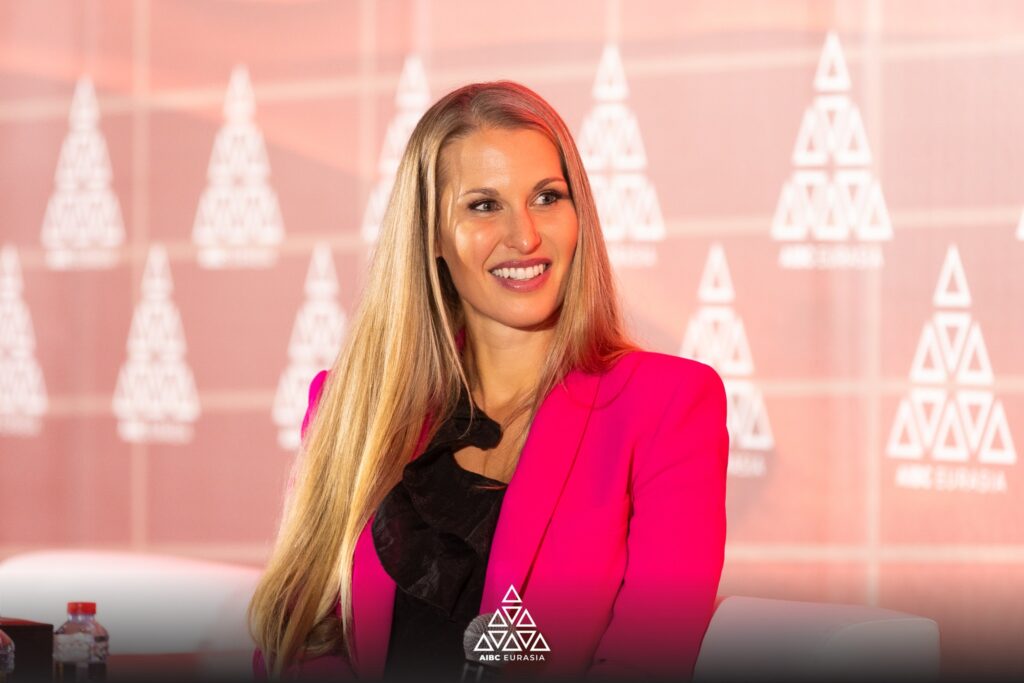
Megan Nilsson, the influential crypto personality known as “Crypto Megan,” dives into the exciting world of crypto in her keynote. Here are some key highlights:
RWA (Real-World Assets): Nilsson predicts that 2024 will be the year of RWA, as more and more investors seek to incorporate traditional assets, such as real estate and commodities, into their crypto portfolios.
Top Crypto Trends: Nilsson identifies decentralized finance (DeFi), non-fungible tokens (NFTs), and layer 2 scaling solutions as some of the top trends that will shape the 2024 crypto market.
Institutional Adoption: Nilsson predicts that we will continue to see more institutional adoption of crypto in 2024, as corporations, governments, and other entities increasingly recognize the potential of blockchain technology.
Crypto Regulation: While regulation can be a double-edged sword for the crypto industry, Nilsson believes that well-designed regulations will ultimately provide clarity and legitimacy for crypto assets, paving the way for greater mainstream adoption.
Megan Nilsson’s analysis of the crypto landscape offers a balanced and forward-looking perspective. As she aptly put it, “The crypto industry is growing and maturing, and while there will inevitably be challenges along the way, the opportunities for innovation and growth are tremendous.”

The AIBC Startup Pitch is a key component of the AIBC Eurasia Summit. The AIBC Pitch aims to be an invaluable forum for companies, facilitating connections with investors and exhibiting innovative ideas to a worldwide audience. Six businesses powered by innovation have emerged as finalists, ready to showcase their ground-breaking initiatives to a renowned panel of judges and around 30 venture capitalists at the event.
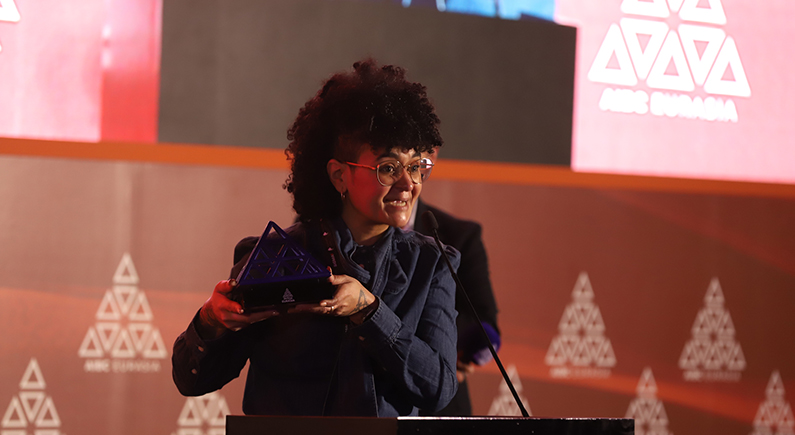
During the SiGMA Eurasia Startup Pitch competition event, two winners were crowned: Genesys, a healthtech project, won the AIBC pitch, while AI stats, a mobile app that empowers football fans with predictive analysis, won on the SiGMA stage.
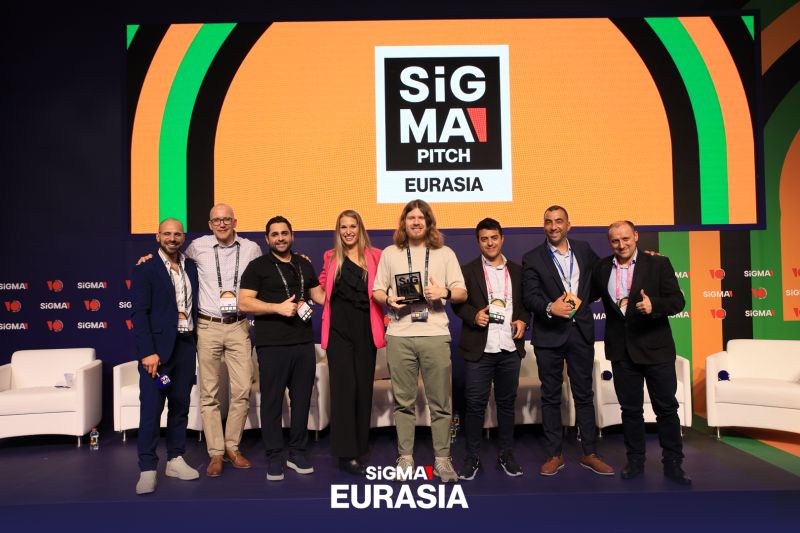
AIstats, the winner of the SiGMA Startup Pitch at SiGMA Eurasia 2024!
